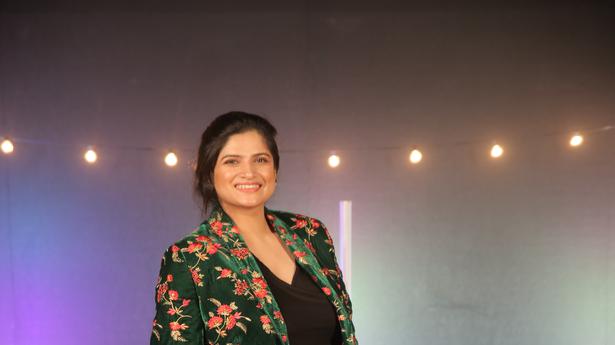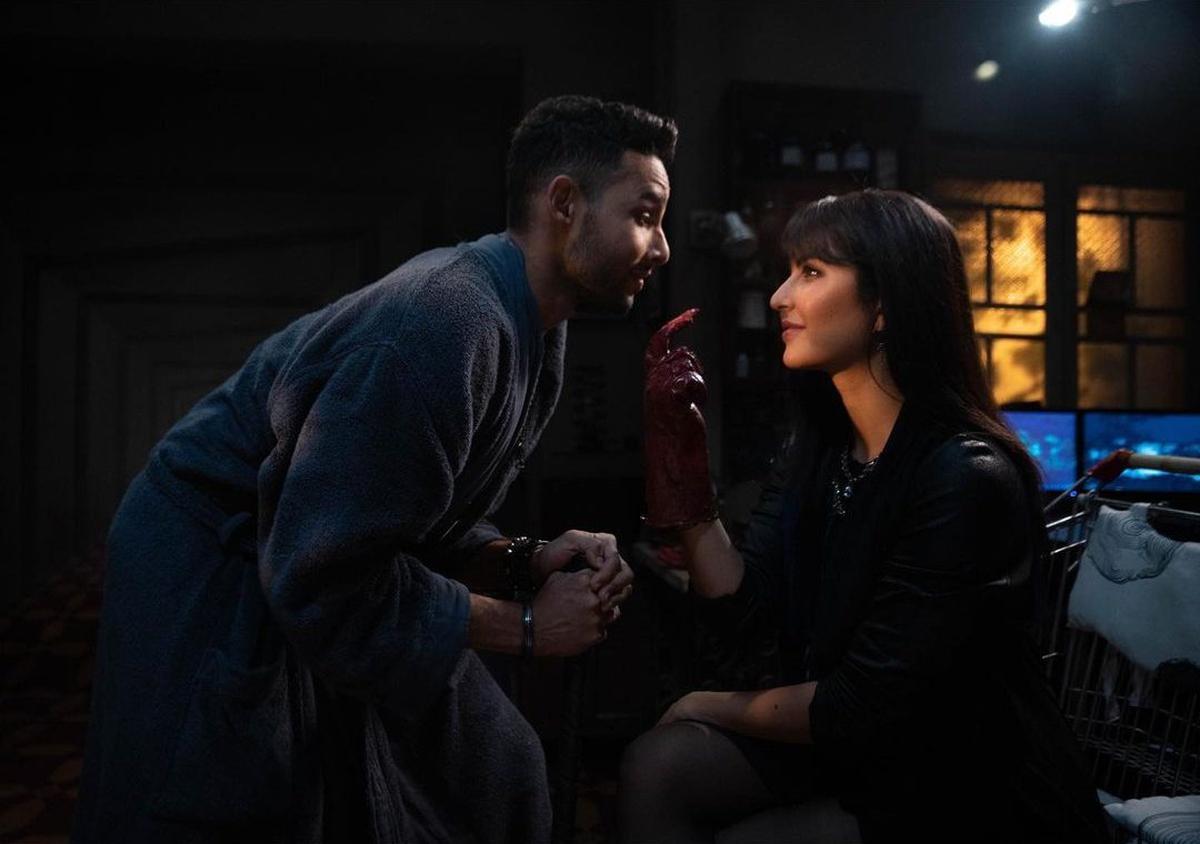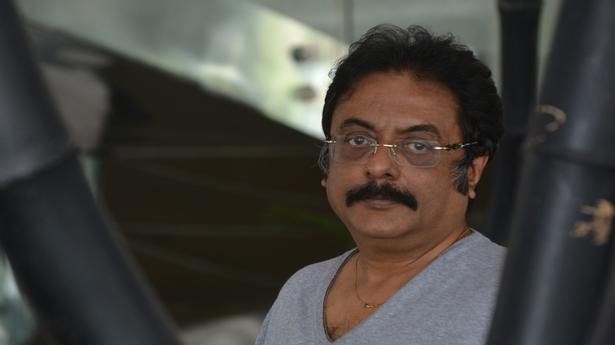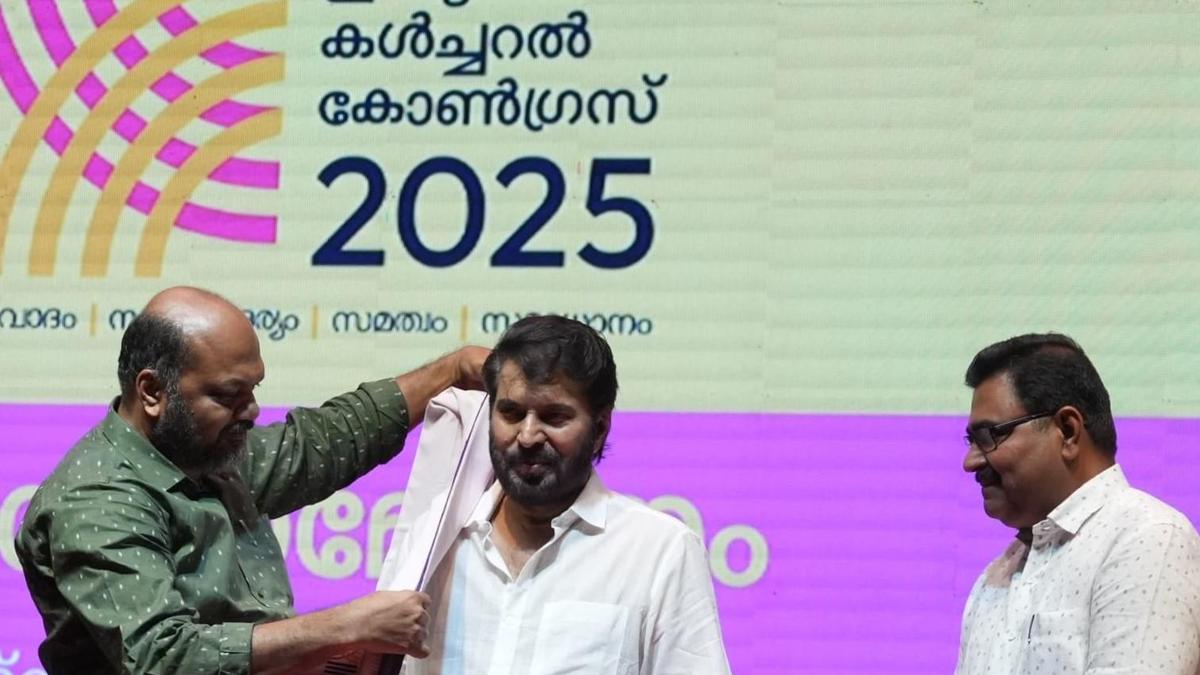Juggling different roles, the Kashmiri Sufi folk singer speaks of the inspiration for this music
Juggling different roles, the Kashmiri Sufi folk singer speaks of the inspiration for this music
It has been a crazy week for Aabha Hanjura. The Kashmiri Sufi-folk singer, composer and songwriter fell ill. Her 15-month-old daughter, Sitara, and her parents followed suit. Besides, there was the release of her song too. “The music helped me sail through,” she says over the phone from Bengaluru. After a two-year hiatus, Aabha is back on the block with an acoustic unplugged EP Sufistication Folk Sessions with a bunch of multilingual songs reflecting folk music of different regions of North India. Two songs – ‘Sahibo’, a prayer in Kashmiri, and a lively Punjabi number ‘Kaale rang da paranda’, that have been released have mixed influences.
The idea behind releasing singles instead of an entire album is to ensure “the songs in different languages get a space to breathe and don’t get lost,”
Of sound and stories
Unlike her first EP, The Sound of Kashmir, marked with heavy sounds, the new EP is minimalistic so that people can focus on the song’s beauty and simplicity. “In Punjabi folk, these are called kissas, a narrative. Folk is also about telling simple stories.” The EP has a happy folk-pop vibe and the sound emphasizing minimalism reflects her state of mind as a person and artist.
Aabha worked on Folk Sessions during the pandemic and the music video was recorded when she was pregnant. It came in like a ‘reclamation of self at a time when the pandemic halted a lot of work for artists.’
‘Kaale rang da paranda’ team: Aabha Hanjura with Deepak Sharma (flute), Prashanth Gnanamuthu (bass) and Biplab Bhattacharya (tabla and percussion)
| Photo Credit: Special arrangement
Launching the EP with ‘Sahebo’ in Kashmiri was apt as people had gone through a lot. “I was releasing music after two years and it was also an uncertain phase as the pandemic brought in so much anxiety. Everybody needs a bit of divine bliss, hope and positivity.”
Having been born in Kashmir and raised in Jammu, though she worked in Mumbai and lives in Bengaluru, she has a huge Punjabi Dogri influence. As someone who set out to make music that celebrates Kashmir and her roots, has she been successful in this journey? “This is always a question that haunts me.”
At a time when she was moving out of a corporate career and looking for inspiration and purpose for her music, she found it in Kashmir when she visited in 2013. Back then, when Aabha began her musical journey, there was no other singer from Kashmir. She felt the language and region were highly underrepresented in the mainstream. She recollects, “That visit was cathartic. I realised there is so much pain all around; that needs to be channelised into something meaningful so that a positive dialogue around Kashmir can start.”
Some of the numbers ‘Huckus Buckus’, ‘Joshwaala, Khoobsurat Roshewalla’ , that were launched after that visit seemed to be reinventing Kashmiri as a language.
A decade-old in the industry this year, Aabha is determined to surprise the audience with her diverse showcase which includes an original in Hindi, her own composition, and a few collaborations.
Juggling roles
She juggles her music with her role as a new mother where everything is in the air. She was shocked to realise how disciplined she has become. For someone who never followed a structured life, her life now revolves around her daughter’s routine.
She says, “It (motherhood) is also like a skill as it turns one into a person who can do better than what they were doing before. I don’t want to glorify motherhood as everything becomes 10 times harder. Becoming a mom has made me a much better person and I wouldn’t have it any other way. Everyone else says it and you realise only when you go through it.”
Being a Kashmiri Pandit, Aabha is pained at the way people pass judgement without bothering to research such a complex issue. “People talk of terrorism or tourism when they talk of Kashmir. One needs to pay attention to its rich culture too.”
The singer tries to create a positive dialogue through music. “It would be great if people had more empathy towards Kashmiris which includes both Kashmiri Pandits and the Kashmiri Muslim community. Sadly people like to take sides when it comes to this issue. The way forward is to have a meaningful dialogue about the root causes, how we address them and not make people the enemy of one community.”








